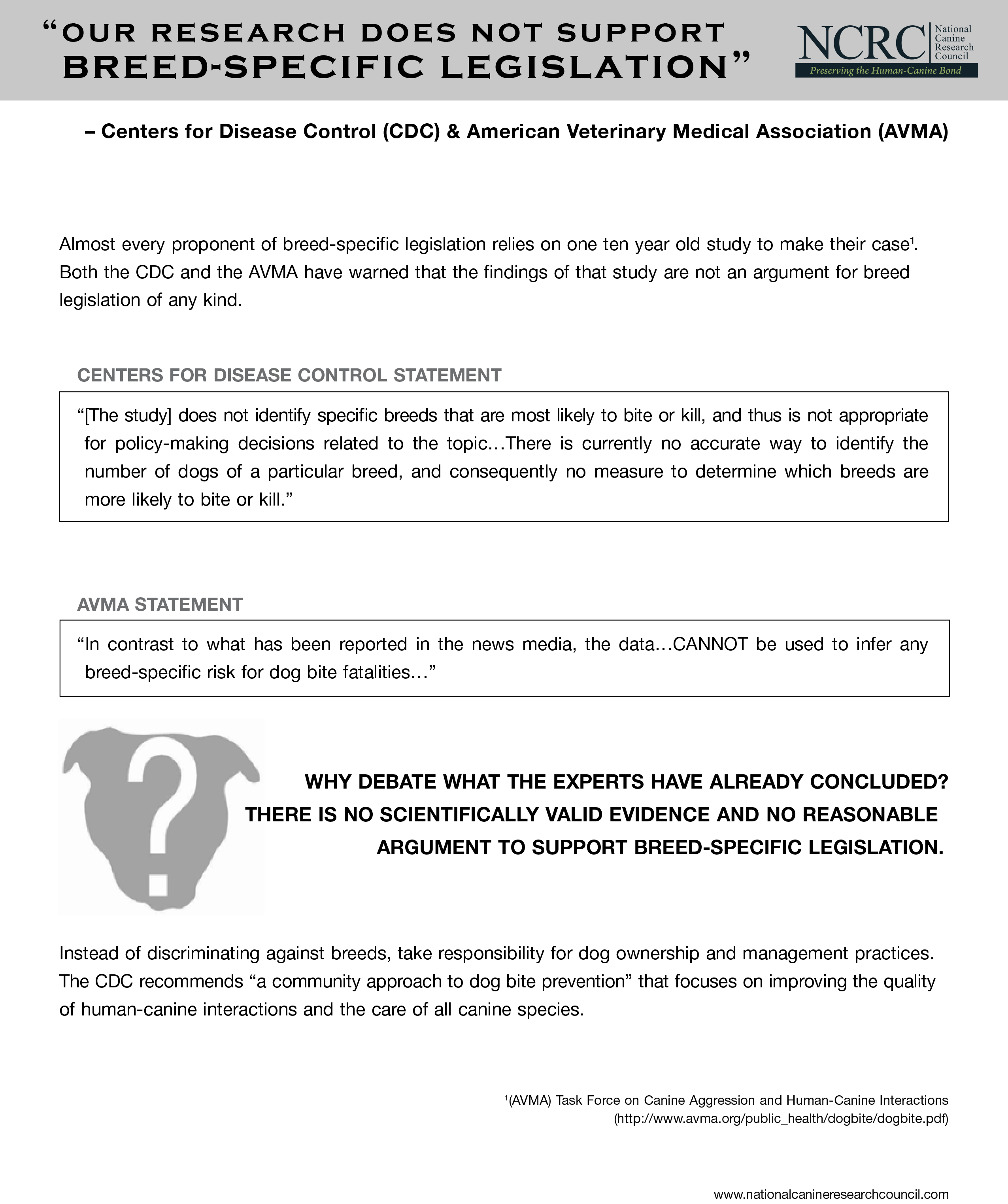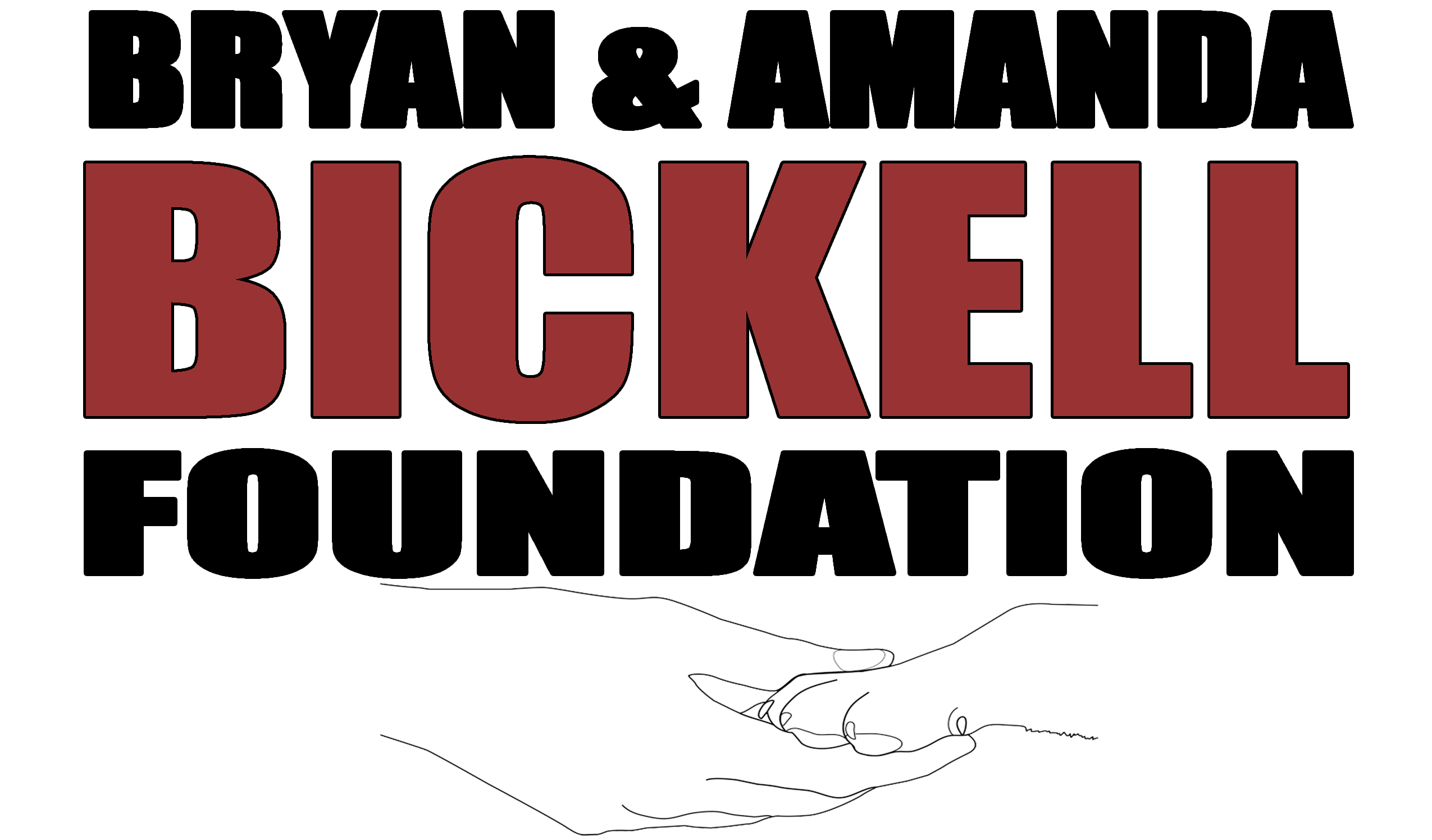
Breed Specific Legislation
In a study by the CDC, factors such as sex and alteration status greatly affect a dog’s tendency toward aggression.
-
More than 70 percent of all dog bite cases involve unneutered male dogs.
-
An unneutered male dog is 2.6 times more likely to bite than is a neutered dog.
-
A chained or tethered dog is 2.8 times more likely to bite than a dog who is not chained or tethered.
-
97 percent of dogs involved in fatal dog attacks in 2006 were not spayed/neutered:
-
78 percent were maintained not as pets, but rather for guarding, image enhancement, fighting or breeding.
-
84 percent were maintained by reckless owners—these dogs were abused or neglected, not humanely controlled or contained, or allowed to interact with children unsupervised.
What is Breed-Specific Legislation (BSL)?
“Breed-specific” legislation (BSL) is the blanket term for laws that either regulate or ban certain breeds completely in the hopes of reducing dog attacks. Some city/municipal governments have enacted breed-specific laws. However, the problem of dangerous dogs will not be remedied by the “quick fix” of breed-specific laws—or, as they should truly be called, breed-discriminatory laws. (Source: ASPCA.com)
Almost all BSL also includes a “substantially similar” clause: “or any dog with an appearance or physical characteristics that are substantially similar to the aforementioned breeds.” In other words, targeted dogs are often subject to BSL not because they are in fact a specific breed, but because they simply look similar to a particular breed or have a general physical appearance that someone might consider “targeted breed-like.” (Source: stopbsl.org)

BSL Does Not Work!
-
BSL is costly to taxpayers and city governments.
-
BSL requires each and every dog to be identified as a breed—something that has proven impossible to do accurately and objectively.
-
BSL makes targeted breeds more desirable to irresponsible and criminal owners.
-
BSL does nothing to make irresponsible dog owners accountable.
-
BSL punishes responsible dog owners.
-
Not a single canine welfare organization supports BSL.
(Source: stopbsl.org)
The ASPCA reports the following issues with BSL:
- Dogs go into hiding. Rather than give up their beloved pets, owners of highly regulated or banned breeds often attempt to avoid detection of their “outlaw” dogs by restricting outdoor exercise and socialization and forgoing licensing, microchipping and proper veterinary care, including spay/neuter surgery and essential vaccinations. Such actions have implications both for public safety and the health of these dogs.
- Good owners and dogs are punished. BSL also causes hardship to responsible owners of entirely friendly, properly supervised and well-socialized dogs who happen to fall within the regulated breed. Although these dog owners have done nothing to endanger the public, they are required to comply with local breed bans and regulations unless they are able to mount successful (and often costly) legal challenges.
- They impart a false sense of security. Breed-specific laws have a tendency to compromise rather than enhance public safety. When limited animal control resources are used to regulate or ban a certain breed of dog, without regard to behavior, the focus is shifted away from routine, effective enforcement of laws that have the best chance of making our communities safer: dog license laws, leash laws, animal fighting laws, anti-tethering laws, laws facilitating spaying and neutering and laws that require all owners to control their dogs, regardless of breed.
- They may actually encourage ownership by irresponsible people. If you outlaw a breed, then outlaws are attracted to that breed. Unfortunately some people take advantage of the “outlaw” status of their breed of choice to bolster their own self image as living outside of the rules of mainstream society. Ironically, the rise of Pit Bull ownership among gang members and others in the late 1980’s coincided with the first round of breed-specific legislation.
Learn more about BSL with these great e-books from Animal Farm Foundation. Click on each e-book to read all about the issues and what you can do to educate yourself about the issues.








